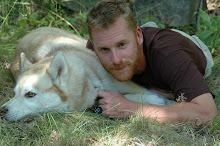 The past couple of days have been interesting... I acquired a chest freezer, went to the market and bought $200 worth of veg, husked 60 cobs of corn tonight and am loving every minute of this experience!
The past couple of days have been interesting... I acquired a chest freezer, went to the market and bought $200 worth of veg, husked 60 cobs of corn tonight and am loving every minute of this experience!So let's catch up...
I bought 10 heads of cauliflower, 10 heads of broccoli, 6 quarts of green and yellow beans and 7 dozen cobs of corn. I have spent the last two night blanching. Likely anyone else reading this would know what that is, but I had no idea! It was boiling a huge pot of water and immersing the veg for just one minute - then dunking it in cold water so it stops cooking - letting it dry and then bagging it for the freezer. For the amount of veg I now have in my freezer, I don't even think it took a lot of time or effort. Cutting the corn of 60 cobs got a bit repetitive tonight, but even that was fun! I'm curious to see how long some of this will last through the winter. I'm tempted to buy the same amount next week and stock up even more!
I aslo bought a bin of blueberries which I have frozen and 6 quarts of strawberries - which I also froze after removing the stems. So my freezer is on its way to sustaining me throughout the winter months.
My base of knowledge in the area of food is slowly growing and I am constantly eager to learn more. Food gardens in schools has become my new project which I will speak more of in days to come.
Pictured above is the great dichotemy between traditional food and industrial agriculture.
On the right is my first heirloom tomato (that I bought at the market!) - in stark contrast to the more nicely shaped and coloured tomato that we all know well on the left! I ate my first heirloom tomato today with a bit of feta on top. Words are inadequate to describe the explosion of flavour in my mouth! Who knew a tomato could taste so rich and meaty?!? It may be the ugly duckling of tomatoes, but it has definitely won me over!


